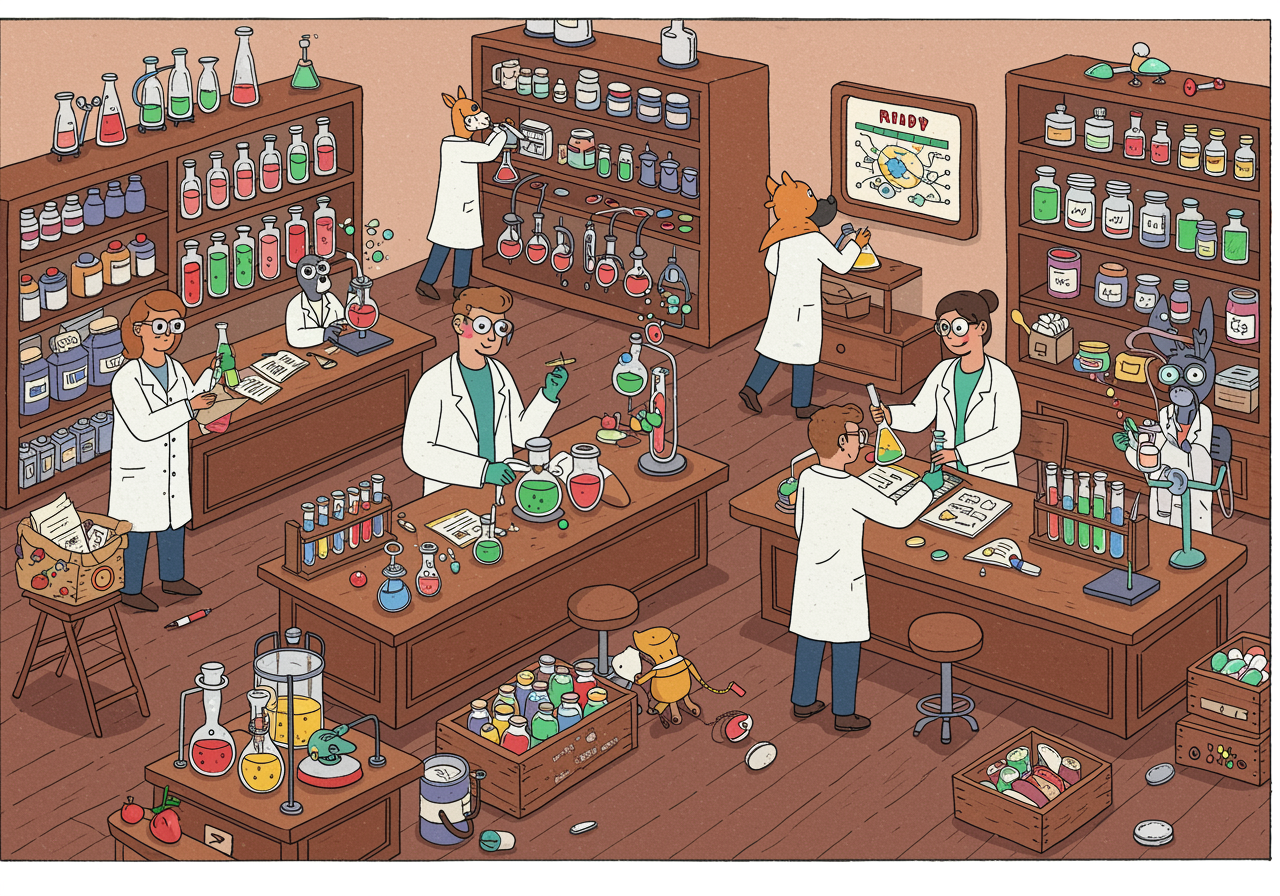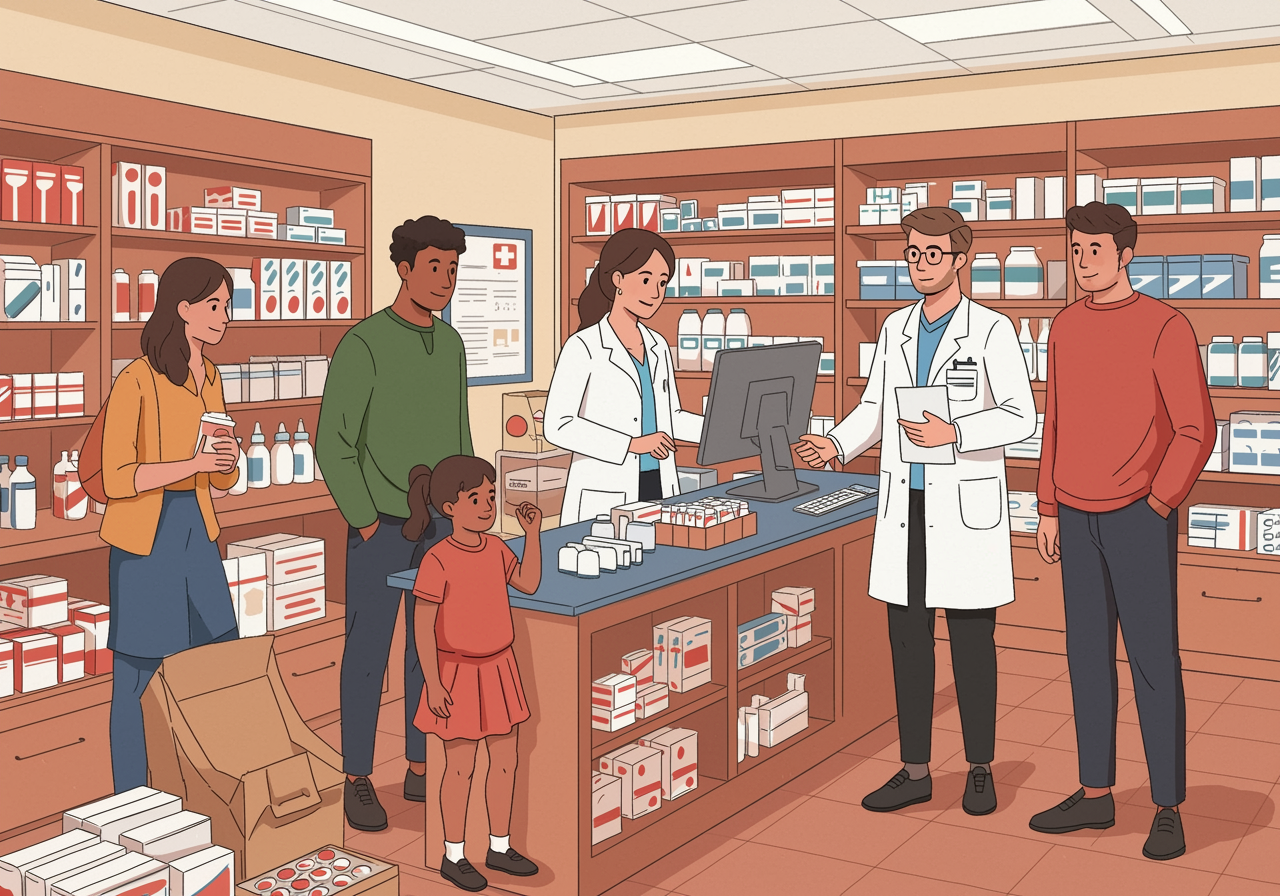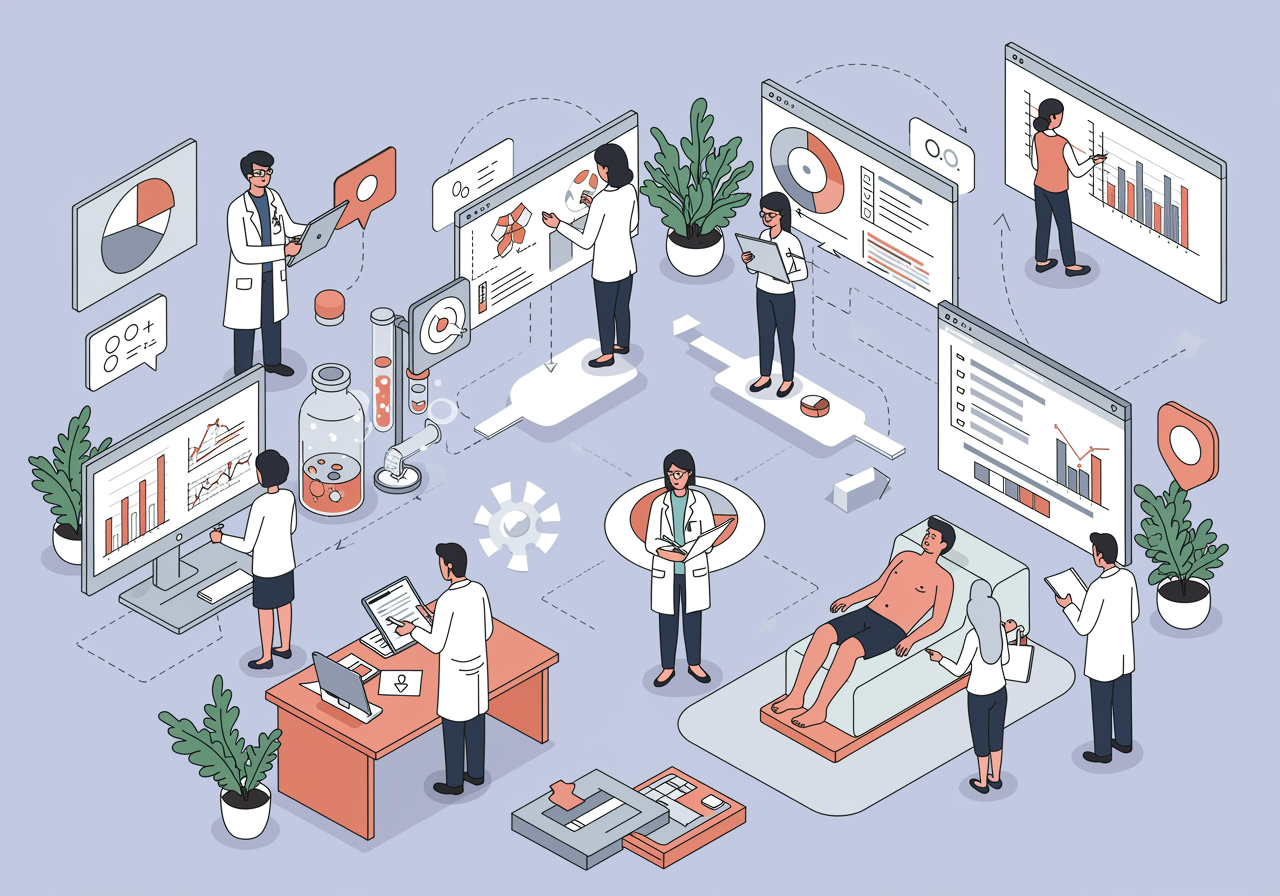Medicine Makers: Heroes, Villains, or Something In Between?

Why some people cheer for drug companies while others give them the side-eye
Discover why trust in medicine makers is complicated, and how your family can think critically about the pills in your medicine cabinet.
Overview
Think about the last time you took medicine for a headache or got a vaccine. Someone made that medicine, but how do you know if you can trust them? This topic matters because your teen will make health decisions their whole life, and understanding how medicine gets made – and why people have different opinions about it – helps them think critically. It's like learning to be a smart shopper, but for something way more important than sneakers. Plus, this conversation builds skills for evaluating any information they encounter, from social media posts to news stories.

Understand in 30 Seconds
Get up to speed quickly
- It's About Money AND Health: Drug companies need to make money to stay in business, but they also save lives. This creates complicated situations where people wonder if profits come before patients.
- Past Mistakes Still Sting: Some companies have done bad things before, like hiding dangerous side effects or charging too much for life-saving drugs. People remember this stuff.
- Science Takes Time: Good medicine requires tons of testing and research, which is expensive and slow. Sometimes people want faster answers than science can safely provide.
- Everyone's Experience Is Different: Some people have been helped by medicines, while others have had bad experiences. Personal stories shape how much we trust these companies.
Real Life Scenario
Situations you can relate to
Imagine your favorite video game company just announced a new game that promises to be amazing. Some of your friends are super excited and pre-order it immediately because this company made their favorite game ever. But other friends are skeptical because the same company once released a game full of bugs and charged extra for features that should have been included. Now imagine this isn't about a game – it's about medicine that could help your grandma's heart condition. Suddenly, the stakes feel a lot higher, right? The company says their new heart medicine is safe and effective, but some people remember when they rushed a different drug to market too quickly. Others point out that this same company has saved millions of lives with their previous medicines. Who do you believe?

Role Play
Spark a conversation with “what if” scenarios
What if you were a scientist who discovered a cure for a rare disease, but it cost $2 million to make each dose?
- Role play: Take turns being the scientist, a patient who needs the medicine, and a company executive. Discuss how much the medicine should cost and why.
What if you were a news reporter investigating whether a company hid information about side effects?
- Role play: One person plays the reporter asking tough questions, while the other plays a company spokesperson trying to explain their actions.
What if you had to decide whether to trust a new vaccine during a pandemic when you only had limited information?
- Role play: Debate the pros and cons of waiting for more data versus acting quickly to protect people, with each person arguing a different perspective.
FAQs
Frequently asked questions people want to know
Are all drug companies bad?
No way! Many drug companies have created life-saving medicines. But like any business, some make better choices than others. The key is learning to evaluate each situation individually.
Why are medicines so expensive?
Creating new medicines costs billions of dollars and takes 10-15 years of research and testing. Companies need to make back that money, but sometimes they charge way more than seems fair.
How do we know if medicines are safe?
Medicines go through lots of testing before they're approved, and agencies like the FDA check the data. But no medicine is 100% safe for everyone, which is why we keep monitoring them.
Examples in the Wild
See how this works day to day
- During COVID-19, some people praised pharmaceutical companies for developing vaccines quickly, while others worried they were rushed too fast through safety testing. (CDC and FDA vaccine approval timelines)
- The EpiPen price controversy, where the cost jumped from $100 to $600, making it hard for people with allergies to afford life-saving medicine. (Congressional hearings on EpiPen pricing 2016)
- Insulin pricing debates, where the same medicine that costs $300 in the US costs $40 in other countries, leading to rationing and health problems. (American Diabetes Association pricing studies)
- The opioid crisis, where some companies were accused of downplaying addiction risks while promoting pain medications heavily to doctors. (Department of Justice settlements with pharmaceutical companies)
In Summary
What you should know before you start
- Trust in drug companies is complicated because they need to make money while helping people stay healthy
- Past mistakes and controversies make some people more skeptical of pharmaceutical companies' claims
- Good medicine requires expensive research and testing, but sometimes companies charge more than seems fair
- The best approach is asking good questions and looking at evidence rather than trusting or distrusting blindly
Pro-tip for Parents
You got this!
If your teen seems to lean heavily toward either complete trust or total skepticism, gently challenge them to consider the other perspective. Ask questions like 'What would convince you to change your mind?' or 'What evidence would you need to see?' This helps them practice the critical thinking skills they'll need for all kinds of decisions, not just about medicine.

Keep an Eye Out For
Find these examples in everyday life
- News stories about new drug approvals or recalls – great opportunities to discuss the balance between speed and safety
- Discussions about medicine costs in your family or community – perfect for talking about fairness and business ethics
- Social media posts making claims about medicines or vaccines – chances to practice evaluating sources and evidence together
Explore Beyond
Look up these related research topics
- How clinical trials work and why they take so long
- The role of government agencies like the FDA in keeping medicines safe
- How medicine costs are different around the world and why